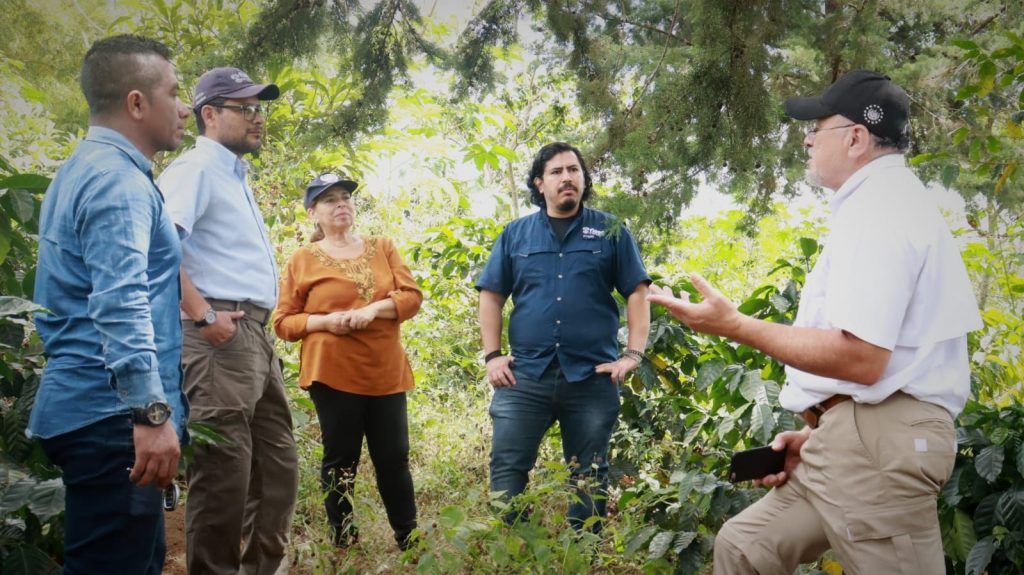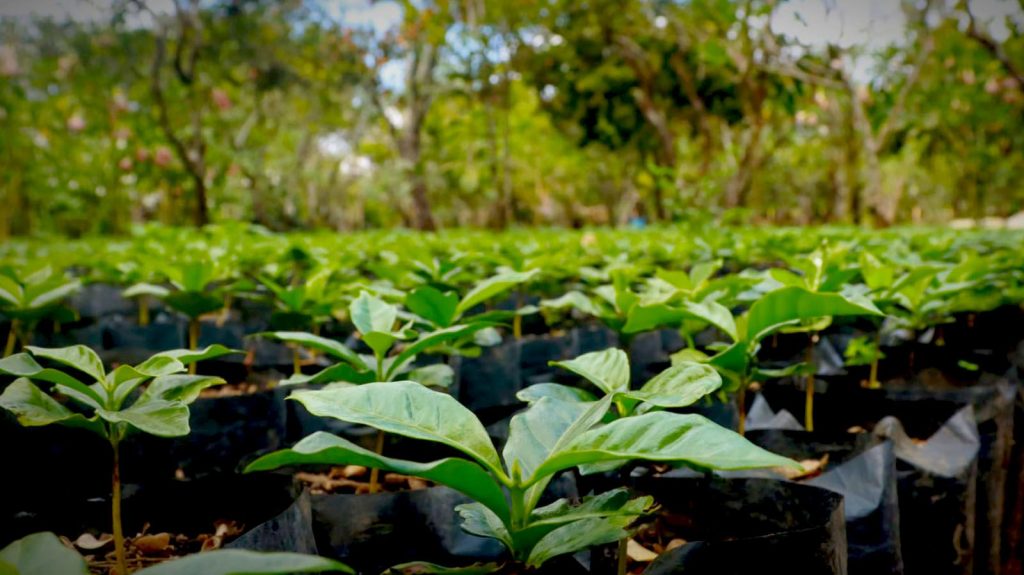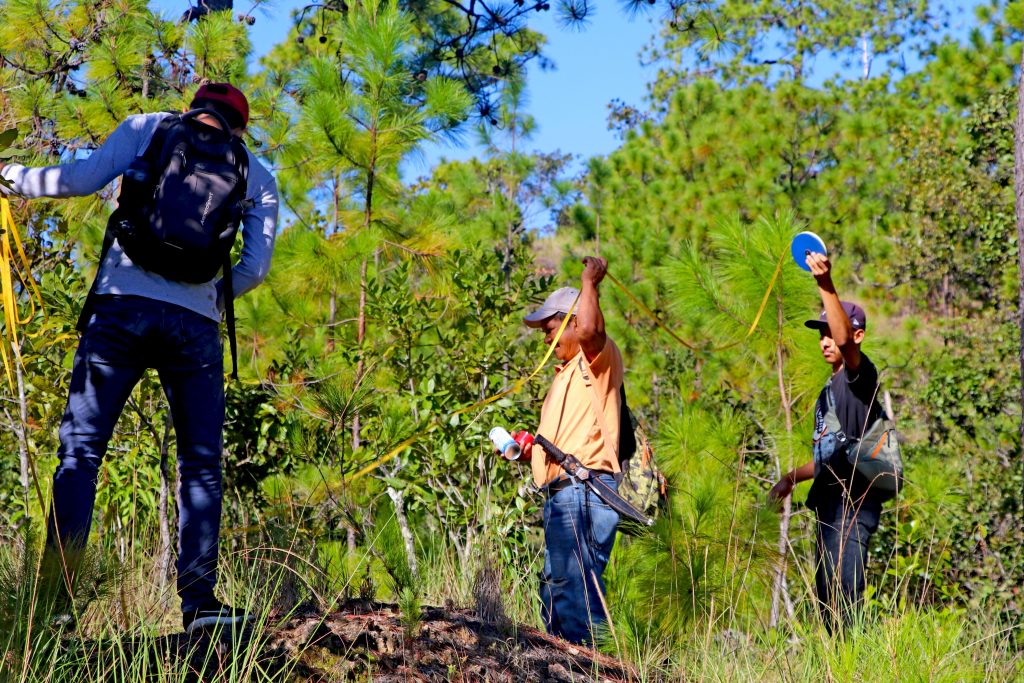El Programa de Naciones Unidas para el Medio Ambiente (PNUMA), el Ministerio de Medio Ambiente y Recursos Naturales (MARN) y el Fondo de Inversión Ambiental de El Salvador (FIAES) implementan el Proyecto Incentivos para una Economía Verde, como parte de la Iniciativa Internacional del Clima (IKI) del Ministerio Federal de Medio Ambiente, Conservación de la Naturaleza y Seguridad Nuclear (BMU) de Alemania.
Partiendo del uso de los suelos en El Salvador, considerando la vocación agrícola del 80% del territorio y la urgencia de desarrollar acciones que minimicen la degradación del suelo por las prácticas agrícolas no amigables con el medio ambiente, “surgió la iniciativa de apoyar el Programa Nacional de Restauración de Ecosistemas y Paisajes, entre 2016 y 2017, a través de un proyecto de incentivos que sustentara la ejecución del programa a través del apoyo al sector productivo de El Salvador”, explicó Carolina Dreikorn, coordinadora del Proyecto Incentivo para una economía verde PNUMA/IKI.
Programa piloto de incentivos económicos y financieros
Para concretar la puesta en marcha del programa piloto de incentivos verdes, fue necesario que se tomara una decisión política al más alto nivel para responder al marco legal ambiental y a la política ambiental nacional. “El Gobierno de El Salvador impulsó la creación de un programa nacional de incentivos y desincentivos ambientales, unificando acuerdos y siendo aprobado por el Consejo de ministros en marzo de 2022”, mencionó Carolina.
Hasta la fecha, el proyecto tiene avances significativos en la implementación de un paquete de incentivos económicos y financieros para apoyar el proceso de restauración de ecosistemas y paisajes productivos del país, logrando la generación de tres esquemas de incentivos: crediticio, de gestión y pago por servicios ambientales.

Incentivo crediticio
otorga a los beneficiarios en diversas escalas y sectores, un acceso innovador a créditos para actividades productivas, el cual tiene tasas de interés menores a las convencionales, se les proveerá un fondo de garantía, recibirán asistencia técnica especializada e insumos para incorporar las técnicas agroambientales como sistemas agroforestales, silvopastoriles y de conservación de los suelos, agua y biodiversidad.

Incentivo de gestión
involucra e incentiva a los pequeños y medianos productores en granos básicos y ganaderos. Este incentivo busca transformar y fortalecer las actividades de restauración, como una estrategia clave para la integridad ecológica y generar beneficios sociales y económicos locales, nacionales y globales.

Pago por Servicios Ambientales
dará un reconocimiento y retribución a los actores comunitarios que participan en la restauración de ecosistemas y paisajes, quienes ya están generando y aprovechando los servicios ecosistémicos.

PNUMA, MARN y FIAES se encuentran trabajando de forma articulada para impulsar el respaldo al Protocolo Verde del Sistema Financiero Público, bajo una alianza con el Banco Hipotecario, uniendo su capacidad técnica y financiera para ejecutar el incentivo con productores cafetaleros en seis fincas ubicadas en Apaneca, en la Reserva de Biosfera Apaneca-Ilamatepec.
En el otro esquema de incentivos se trabaja un piloto con ganaderos y productores del departamento de Chalatenango,
esta fase es parte de una estrategia ambiental mayor para restaurar ecosistemas y tierras agrícolas, sumando esfuerzo con el sistema de compensación y conservación que busca garantizar la pérdida no neta de biodiversidad.
En cuanto al Pago por Servicios Ambientales (PSA), es uno de los esquemas que representa un mayor reto para su aplicación, pues implica iniciar a pequeña escala bajo un enfoque de cuenca, donde el detonante es el recurso hídrico, vital para todas las actividades agroambientales, humanas y productivas. Esta fase piloto reconocerá el trabajo de los agricultores que han transformado o mantenidos sus parcelas con bosques, incluyendo técnicas de conservación de suelos y agua para mejorar sus tierras y calidad de vida, dando especial atención a aquellas áreas ubicadas en zonas de amortiguamiento de áreas naturales que, además, fortalecen la conectividad entre ecosistemas y corredores biológicos, en el departamento de Morazán.

Técnico en comunicaciones de FIAES




